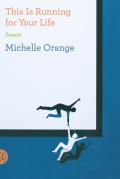"I can’t stop acquiring books,” says Fallowell. “But I’m not guilty about it. It’s a kind of necessity. Books, to me, are like oxygen. I’m a fish swimming in an aquarium of the intellect. … The books demanded to be incorporated into my domestic world.”
It’s a beautiful little film, and greatly enjoyable viewing. The YouTube précis, though, is curiously inaccurate, describing Fallowell’s collection as a "library which has spilled over into every available space and become an art installation in its own right." Fallowell has a lot of books, sure, but by all appearances it amounts to nothing like, say, the apartment that houses Brazenhead Books in New York – and Fallowell’s is hardly the helter-skelter hoard of a kook. To imply that the abundance of titles signifies, in its own right, a form of eccentricity is peculiarly dispiriting. Fallowell himself seems to resist the implication at one point:
"One does need grounding in the physical world. This is why the electronic book means nothing to me. Because a book is a physical object too. And writing, to me, is a physical act. It’s a sculptural act as well as an intellectual act. The two come together. … Do you think writers are odd? I don’t know. I don’t subscribe to this idea that you’ve got to be odd to be a writer…. Perhaps you’ve got to be more normal than other people.”
Having steadily built my own home library over the last several years, I wish to happily count myself among such ‘normals.’ And I’m delighted to spot, among Fallowell’s volumes, a number of my own fondest: On Grief and Reason and Watermark by Joseph Brodsky; David Marr’s life of Patrick White; and Leon Edel’s towering biography Henry James.
Fallowell: “There’s something about the lushness, the richness, the open-door quality of a book. Open a book and you’re opening a door. All these books just remind me of worlds beyond worlds and they are an expression of freedom. As we know, the first thing dictators do is control books, control what people are allowed to read. … I’ve always wanted to wander, and I can wander very conveniently in my library…"

